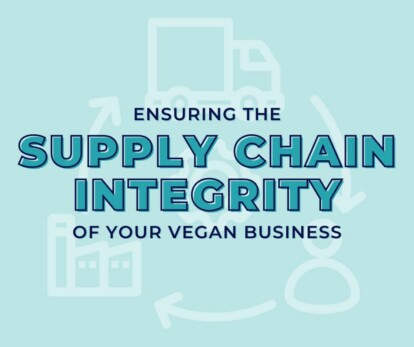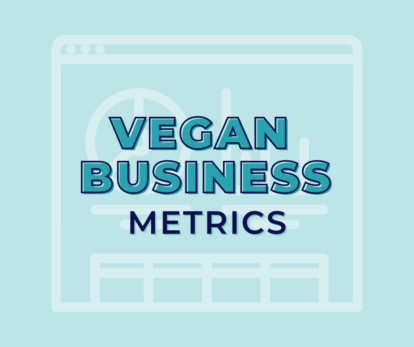Ensuring your supply chain integrity as a vegan business


Knowing which business metrics to track could be a game-changer for the growth of your vegan business.
When you know your numbers, it’s easier to make decisions based on data and facts. You can also track your progress, spot opportunities and avoid mistakes. If problems do occur, the metrics will help you to identify them and respond quickly.
The most important metrics to track will depend on the business model for your vegan organisation.
If you’re focused on growing an audience for a cause, which is the stage we’re in at Ethical Globe, then you’ll probably be more interested in growth metrics than those covering sales and profitability. That’s not to say you can’t monetise your business model in the future but, right now, your focus will be on raising brand awareness and building a community.
On the other hand, if increasing revenue and profitability are central to your business model then growth metrics will only truly matter if they’re linked to an increase in sales. Your social media statistics, for example, could amount to vanity metrics if your followers aren’t turning into paying customers.
If you’d like to know more about where to find these metrics, what they mean and the equations to work many of them out, you can download our comprehensive guide here.
If you have a product-based vegan business and sell online through an e-commerce store, knowing these numbers can be valuable:
Where to find this information: You can find all of the metrics above on Google Analytics and Google Search Console. If you have a WordPress website, various plugins are also available to help you track these figures, including shopping cart abandon rates.
With a physical store, you will want to track metrics that help you keep an eye on your store’s profitability, manage the inventory and improve forecasting – these include:
Where to find this information: You will be able to find this data within your sales records. To track foot traffic, you may need dedicated sensors or software.
Some metrics apply to all retail businesses, regardless of whether you sell to customers in-person and/or online. These include:
Where to find this information: Again, these metrics will be within your records for each sales transaction and in your purchasing/inventory records.
If you’re building a vegan brand then a lot of your activities will be around growing brand awareness. There are many metrics that can help you to measure this – here are a few you might want to track:
Where to find this information: Each social media platform provides analytics information to businesses about how people are interacting with the profiles/pages and the content on them. If you use email marketing software, this will let you see subscribers, open rates, unsubscribes and plenty more.
If you run a not-for-profit vegan organisation such as a sanctuary or rescue centre, you’ll want to track many of the brand-building metrics we talked about above, as well as metrics around website visits, which we covered in the e-commerce section at the start of this guide.
There are other stats that will help you too, especially with fundraising:
Where to find this information: These metrics will come from a variety of sources, including your donation records, fundraising spend, giving pages online and your website analytics.
Whatever category your vegan business comes under, the following metrics will help you keep an eye on your growth, sales and profitability:
Where to find this information: Again, these metrics come from a variety of sources, including your sales and marketing records, Google Analytics, Google reviews, social media pages and more.
In any business, it’s vital to get as much “bang for your buck” as possible, using your various budgets (e.g. for fundraising, marketing, recruitment, training, etc,) where they will give you the greatest returns on your investment.
The metrics below can help you track this and stay on top of the financial picture for your organisation:
Where to find this information: These metrics can be found through your bank records and/or accounting software, sales records and transactions, and marketing spend records.
The secret to using metrics to their full potential is building them into your processes and record-keeping, even if it’s just a month-by-month comparison in a paper planner or on an Excel sheet. Keep an eye out for trends, as well as peaks and dips in activity and refer back to your metrics for decision-making.
Which of these metrics do you already track? Which do you think you will start tracking now that we’ve reminded you?
If you’d like to know more about where to find these metrics, what they mean and the equations to work many of them out, you can download our comprehensive guide here.